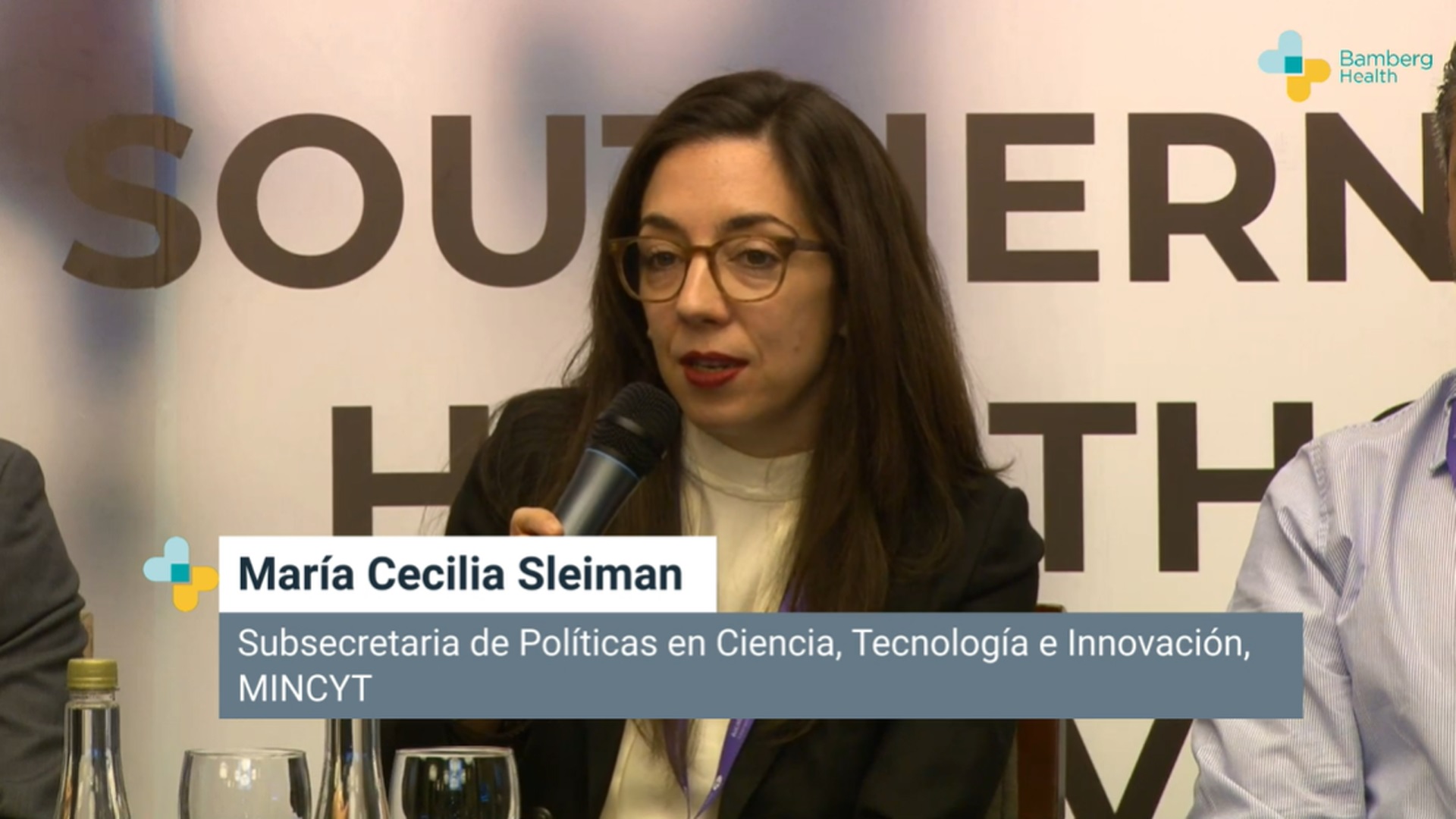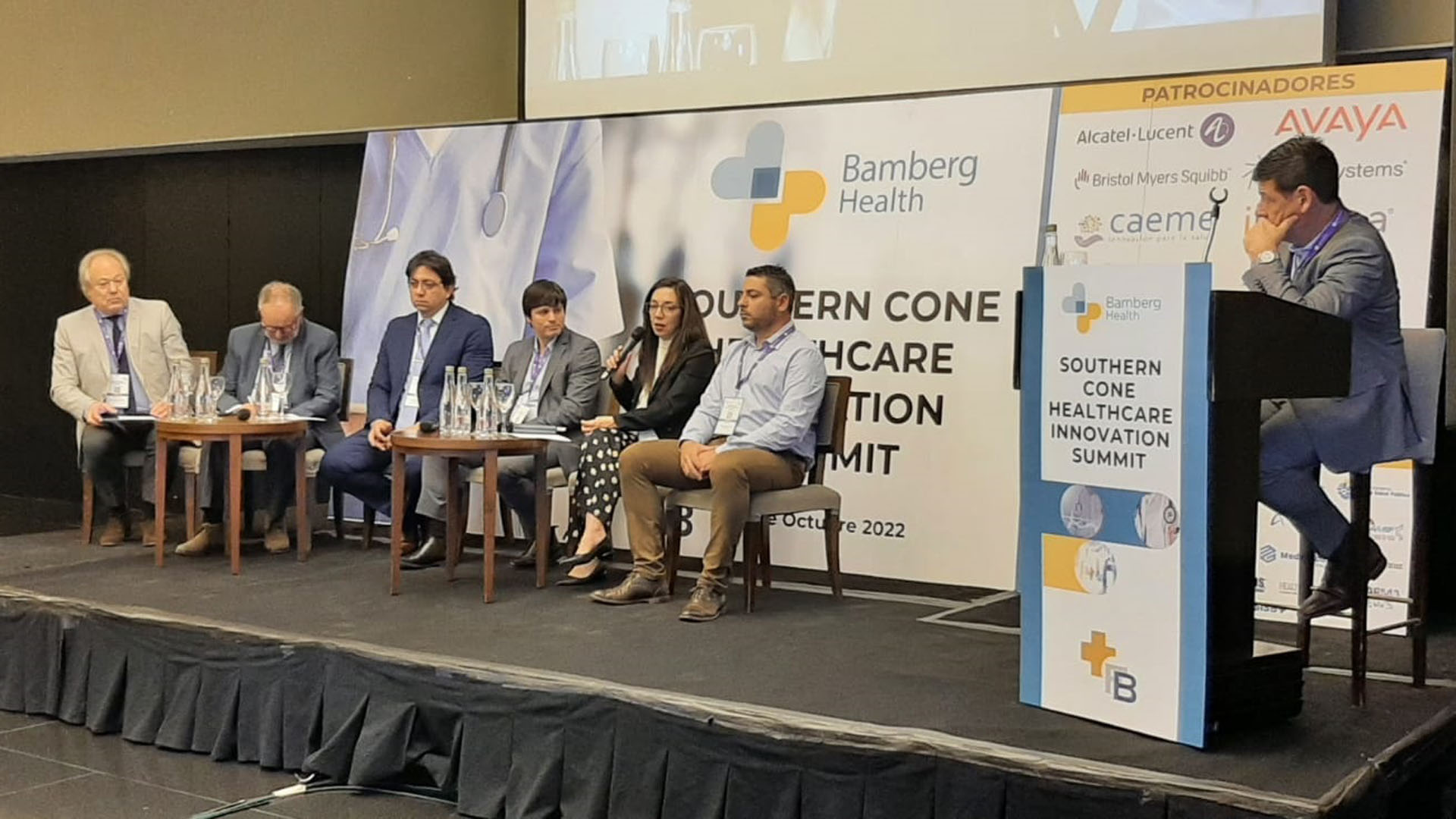“Innovation happens almost daily and obsolescence follows. What and why do we innovate? In medicines, in diagnostic and therapeutic technologies and procedures, in the use of artificial intelligence, in processing large amounts of data, in clinical care, in healthcare and management. We innovate for better living, innovate for Better human and social development with opportunities for all. In this way, Ignacio Parra, President of the Bamberg Foundation, started a program Southern Cone Healthcare Innovation Summit 2022. The event took place on October 5 in Buenos Aires and was attended by health authorities, those responsible for the digital transformation of health, experts in artificial intelligence and big data, those responsible for infrastructure of hospitals and medical equipment, including representatives of biotechnology and pharmaceutical therapeutic innovations from Argentina, Chile, Uruguay and Brazil.
In the panel discussion titled “Promoting Digital Health and Interoperability as a New Health Ecosystem,” Undersecretary for Science, Technology and Innovation Cecilia Suleiman noted that the national challenge of “achieving accessible, equitable and high-quality health” is an integral part of the CTI 2030 plan. The patriotism that was unanimously approved last week by the Senate Committee on Science and Technology is continuing the debate process to become law. Similarly, the official presented the ARPHAI project, a research and development initiative promoted by MINCyT and the National Directorate of Information Systems of the Ministry of Health (MSal) and implemented by CIECTI, which was selected for funding among more than 150 proposals from around the world, under the AI4COVID Global South Program of the Research Center International Development Cooperation (IDRC) in Canada and the Swedish International Development Cooperation Agency (Sida) in Sweden. Its main goal is to develop technological tools based on artificial intelligence and data science that, when applied to electronic medical records, allow for the anticipation and detection of potential epidemic outbreaks and favor preventive decision-making in public health. ARPHAI focuses its work on health events identified by the Ministry of Social Affairs, directing initial efforts on COVID-19 and dengue fever, and developing capabilities to apply them, in the future, to other infectious and contagious diseases in the country.

Regarding the difficulties that arise in digital health issues, Soliman drew attention to the biases of developed prototypes (models, algorithms), and in this sense stressed the importance of having multidisciplinary health management teams. In addition, in order to eliminate the barrier involved in translating research findings and their implementation into public policy, Minceti’s Undersecretary for Public Policy noted that the strategy of the science and technology portfolio is to identify and present problems or challenges that Argentina faces. in different fields so that the scientific-technological system can develop responses to them.
The session was moderated by Arnaldo Medina, President of the University of Arturo Gorrucci (UNAJ), and speakers were also Mauro Vega, Head of Systems at El Cruce Hospital; Miguel Garcia, General Director of the Mutoni Sanitarium in Uruguay; Marcelo Marchetti, medical director of the Italian Hospital in Buenos Aires; Leandro Noir Alasía, Director General of Health Information Systems in the City Government of Buenos Aires and Luis Alberto Alvarez Peñaú, Director General of Information and Communication Technologies at the Ministry of Public Health and Social Welfare of Paraguay.
The forum was held in a mixed fashion, with the participation of health professionals, government officials and representatives of the pharmaceutical and service industries from different Latin American countries.





